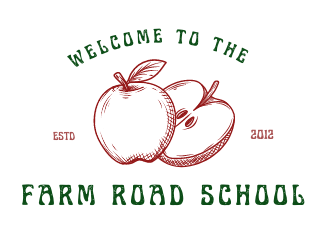
Difficulty Doesn’t Make it Worthy
or Not Sucking the Joy Out of Literature
Having degrees in literature and library science I have a special, sometimes love/hate, relationship with the classics. On the one hand I believe that knowing them well makes it easier to navigate the modern world of art, theater, fiction writing and even television. There are references everywhere to these texts and ignoring them creates a kind of cultural illiteracy. On the other hand, I don’t think that ancient literature has more value than modern literature just by virtue of being old. What does give them value, and what has kept people sharing them with one another for hundreds of years, is the stories themselves. If the purpose of literature is to give expression to humanity with all its pitfalls and triumphs, then it’s easy to “teach” it to our children.
As an example, this year all three of my children are doing ancient history and literature. I chose a selection of texts from Susan Wise Bauer’s Great Books Study that I thought seemed reasonable for a school year, wrote them in a spreadsheet and placed a book order. At the moment we are working through the Iliad. When I say that I imagine that some people think my children are sitting at desks leaning over a copy of the epic poem with highlighters and furrowed brows. Actually, once a day my kids and I sit at the dining room table, on the couch or in the car and listen to the audio version of Robert Fitzgerald’s translation and then we chat and joke about all the references to spears punching through the skulls of Achaeans and whatnot.
“…and then we chat and joke about all the references to spears punching through the skulls of Achaeans and whatnot.”
Am I worried about this not being scholarly enough for a high school level literature class?
No. Firstly, my children are familiar with the plot details and major characters of the Iliad. When my kids were younger we read and listened to audiobook versions of classic stories written specifically for children. We used Mary Pope Osborne’s rewriting of Homer’s Illiad and Odyssey and Shakespeare for Children by Charles and Mary Lamb. I highly recommend exposing your children to the classics this way. There is no difference between Goldilocks and the Three Bears and Twelfth Night besides our perceived difficulty. They are good stories and children deserve the plot twists and jokes in both of them.
And secondly, the purpose of reading great literature is not the struggle of it. As I mentioned before, literature’s purpose is to communicate the great themes of human life on earth and slogging miserably through it doesn’t make it more worthwhile. Their conversations with peers and professors about the epic won’t be hindered by the fact that they listened to it instead of reading it with their eyes. Their laughter about the graphic gore or the petulance of the slighted gods and goddesses on Olympus isn’t a liability, it’s a scholarly asset. When I arrived in college I knew just enough about classics to revere and fear them. I understand that it creates some job security to keep a little mystery around the Great Books, but I want my children to walk confidently into college level literature and I believe the simplest way to do that is to make sure that they love it.


